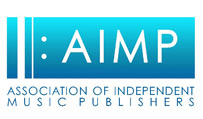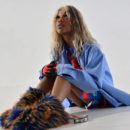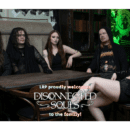 Tyler Bacon
Tyler Bacon
Company: Position Music
Clientele: Welshly Arms, Fantastic Negrito, Natasha Blume
Contact: positionmusic.com
Before he launched Position Music nearly 20 years ago, Tyler Bacon worked in A&R, notably for a Nashville label started by Japanese electronics company Pioneer. While there, he discovered who and what music supervisors were. The label folded in 1999 on the same day that PolyGram and Universal merged. He decided then to ask friends who ran various indie labels if he could rep their catalog for film and TV licensing. That gave him a roster reach of a few hundred artists and Position Music was born.
What makes Position Music distinctive?
We serve many clients and get to know TV music supervisors, production companies and editors. As we grew, we started a production music catalog and we have production and independent music publishing arms. A few years in, I learned about trailer companies and the movie trailer market. So we became intentional about that and evolved into one of the best companies in the world to provide music for movie trailers, which is a very specific niche, from an A&R perspective. So we have three areas: indie publishing, trailer music, production music.
What do you do to make publishing better for the songwriters that you sign?
We become actively involved in the lives of many of our writers and it has changed their career and career paths. We have writers that make their living based on their work with us. It’s exciting to find a writer who might not have had a lot of activity [in their career], find real talent in them and then create projects and outlets that enable them to do music full time. It’s one of the most gratifying things that we do.
Can you share a story about how an unsigned songwriter came to your attention?
We’re finishing a deal with a band called Fantastic Negrito signed to Cooking Vinyl in the UK. Xavier [Dphrepaulezz] is the main guy; he’s essentially the band. I discovered him in the early two-thousands. I was a white boy with dreadlocks and I’d go to this salon in LA called Oh! My Nappy Hair. I was in one day and this great R&B song came on. I asked who it was and they told me that some guy had come in and dropped off his CD. I could tell from it that he was independent. I reached out and now 15 years later, I’m signing him to a new project.
How do the songwriters you sign respond to the changes in the music biz?
Great writers and producers who evolve and stay current, are aware of what’s going on and are excited to do something new. Other writers might be true to themselves, do what they do and try not to take trends into consideration. Both could be positive or negative. Someone who chases trends might never be true to themselves or really are great at doing everything. Most writers aren’t. True artists evolve and, ideally, set trends. You have to follow your heart.
How do changes in the music industry—such as artists assuming more independence and posting their songs online––affect publishers?
You want an infrastructure that encourages output and opportunities because most artists aren’t great from day one. They need to create, put music out, get feedback and evolve. It’s fantastic that we live in a world where that’s so easy now. Indie artists with the right infrastructure can go viral.
How has streaming and decreasing album sales affected writers’ incomes?
From our perspective, that’s not a huge issue because we’re so focused on sync. We generate a lot of revenue in that space. Our primary source of income is not record sales so we haven’t felt that decline so much. We’re now in a world where income is increasing; we’re no longer in a decreasing market. As a publisher, we’ve evolved into a label, which we now emphasize more and more.
Who among your writers are making a name for themselves?
We have a band called Welshly Arms that we signed two months after they formed. It’s nearly a perfect case scenario. It started as a publishing deal on one EP and we put all of these pieces together in the development of a writer and an artist and then we got them a large tour. We did a single called “Legendary” that started to take off, labels from Europe began to call and we signed a deal with Universal for all of Europe.
Do you accept unsolicited material?
Yes. Who knows how quickly it gets heard, but we have five A&R guys. Most of our activity comes through someone we know––referrals from managers and so forth. But there’s any number of artists we’ve signed completely from unsolicited submissions.
In terms of audio quality, how good do you expect submissions to sound?
We aim to be the best in the world. We’re a relatively small indie company––20 people––that has major-label expectations. We spend a lot of time looking for music as well as developing writers and artists. We’re really particular. •













